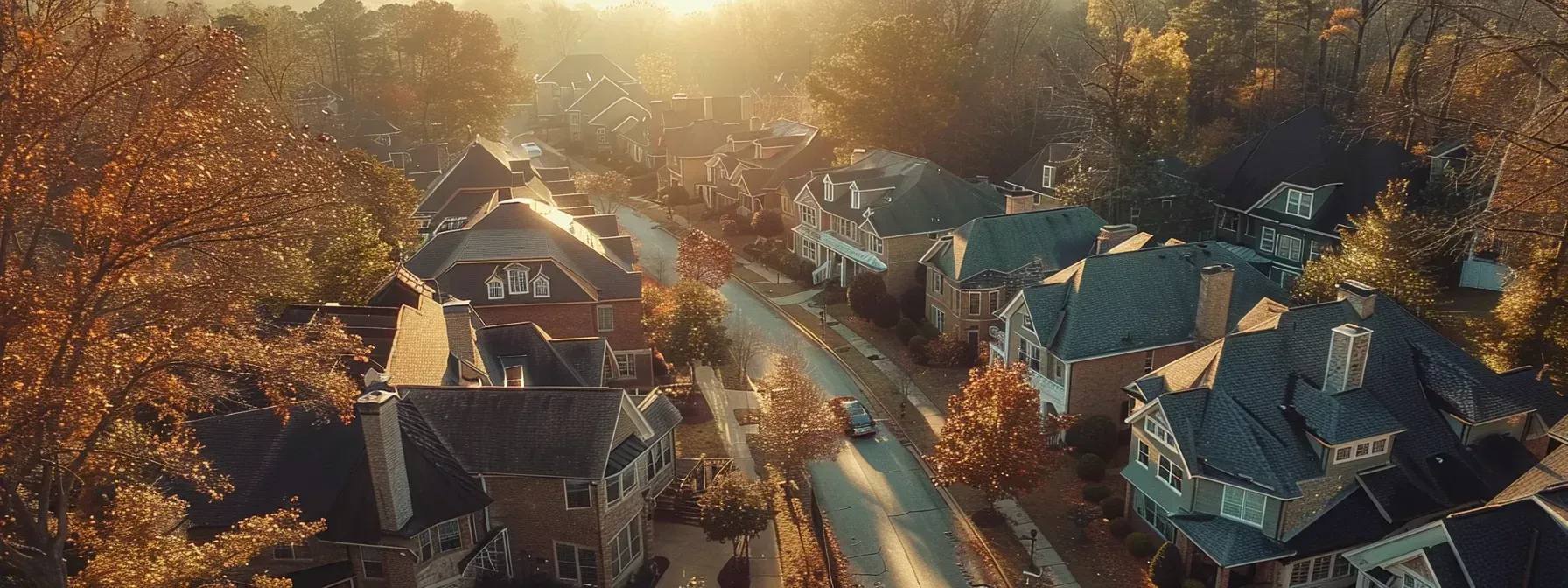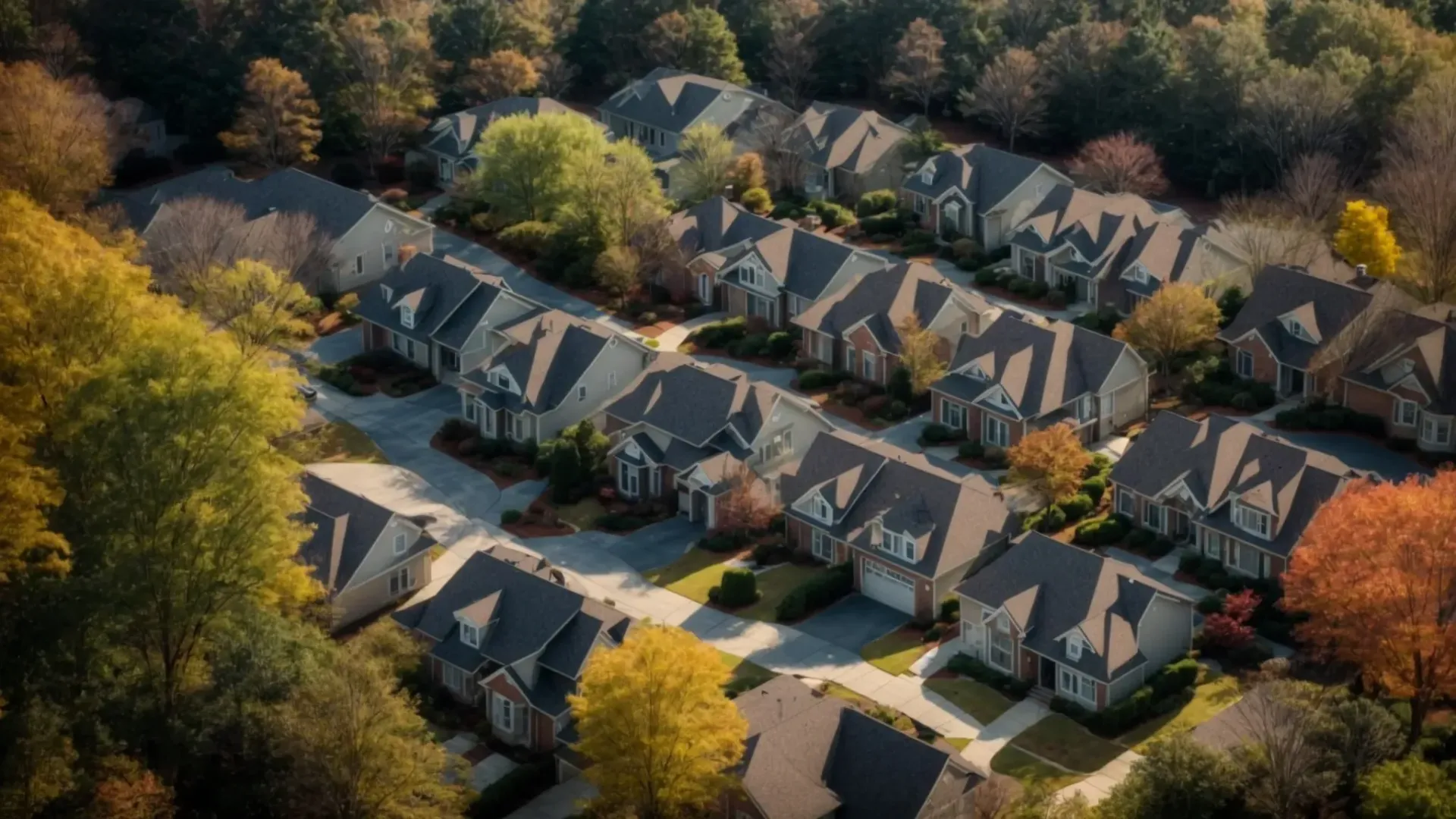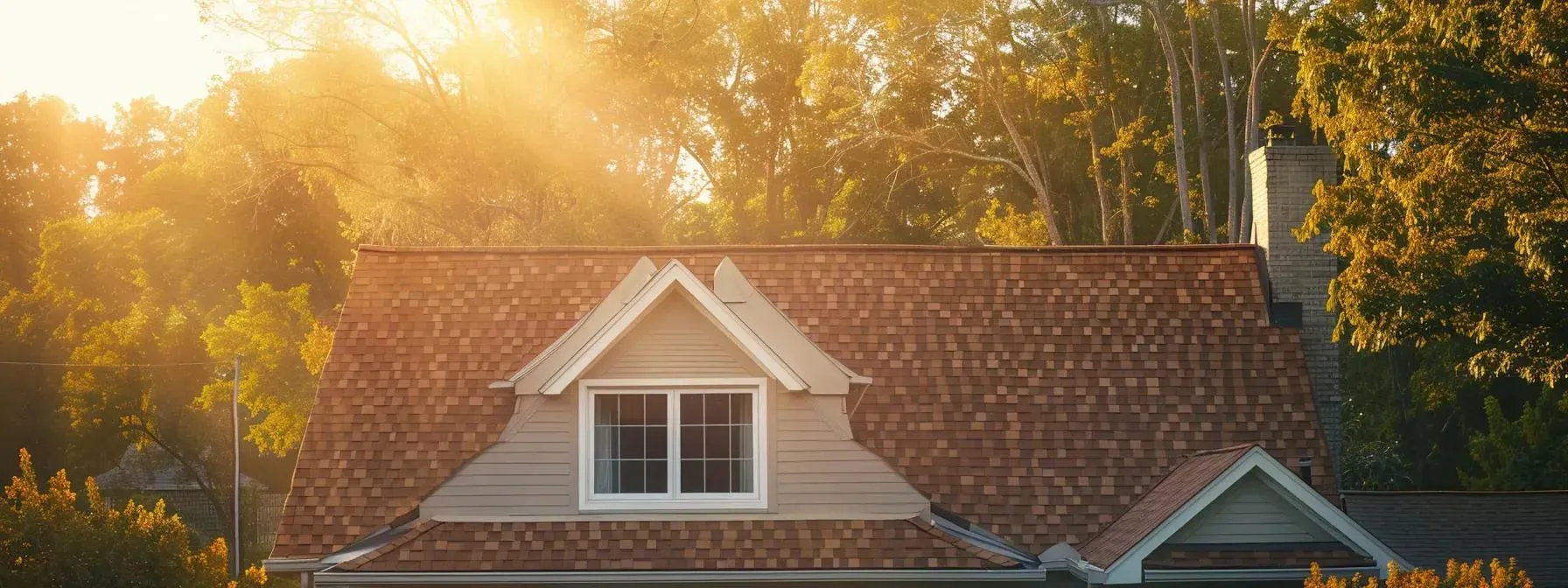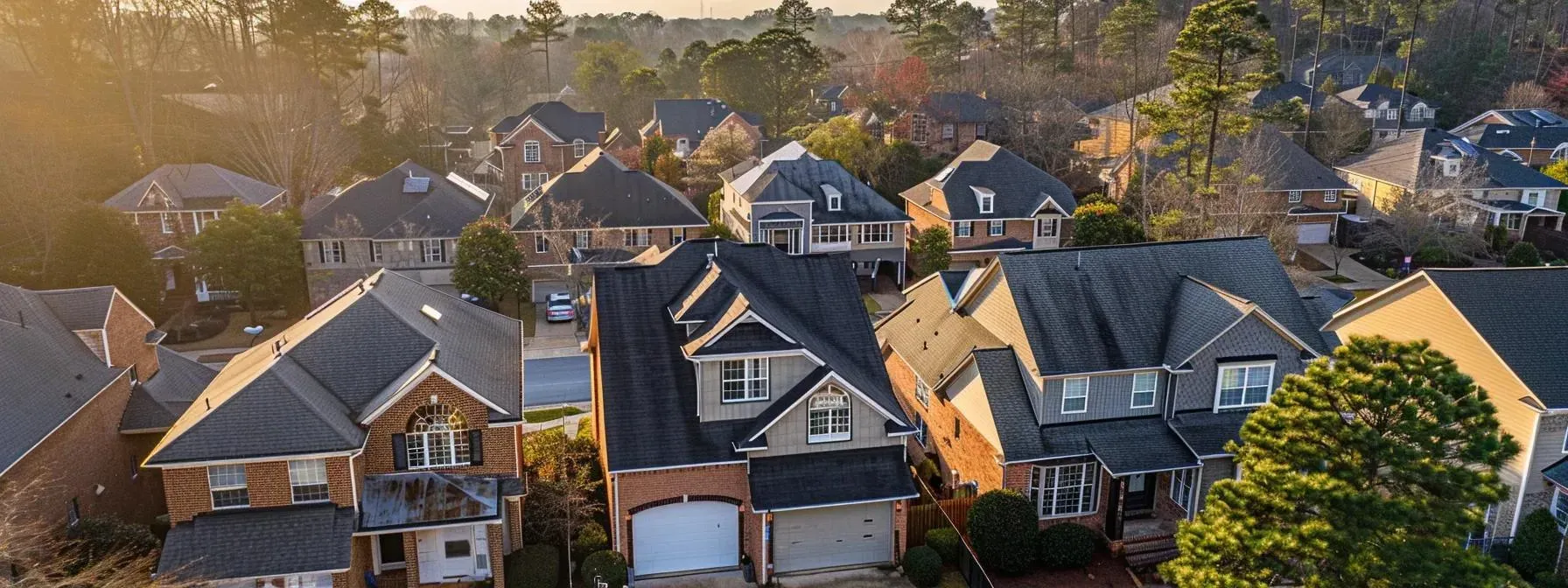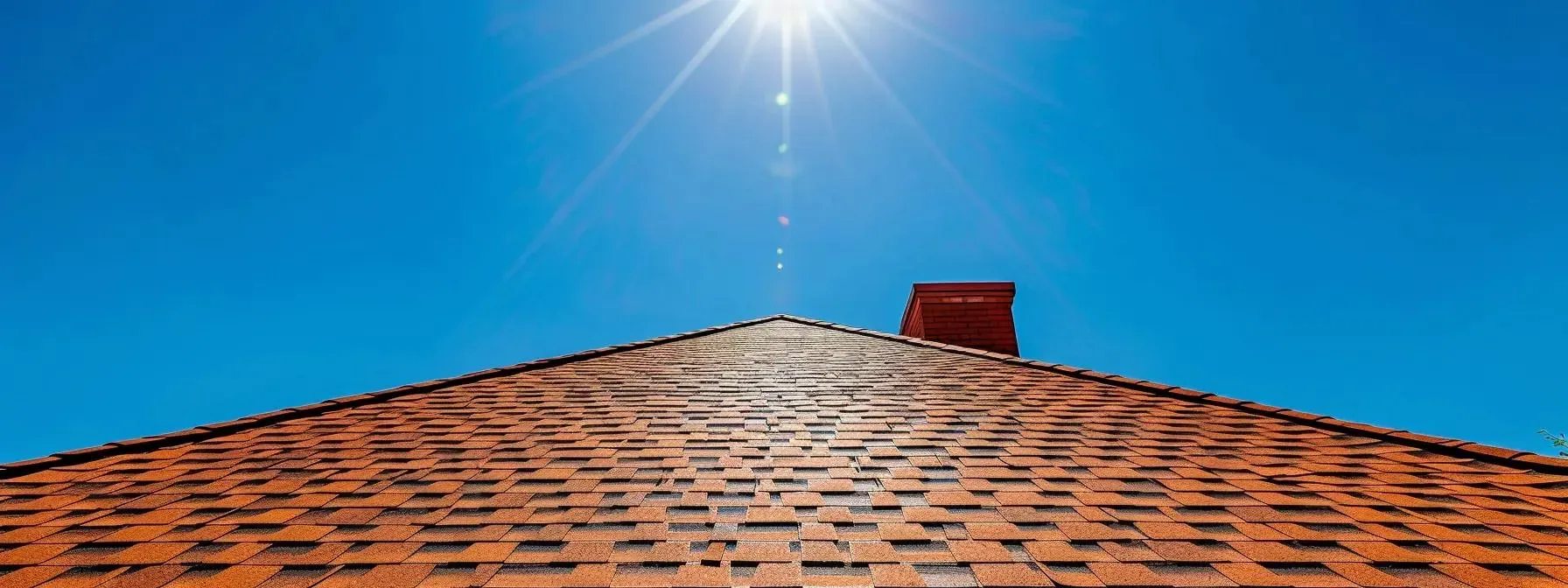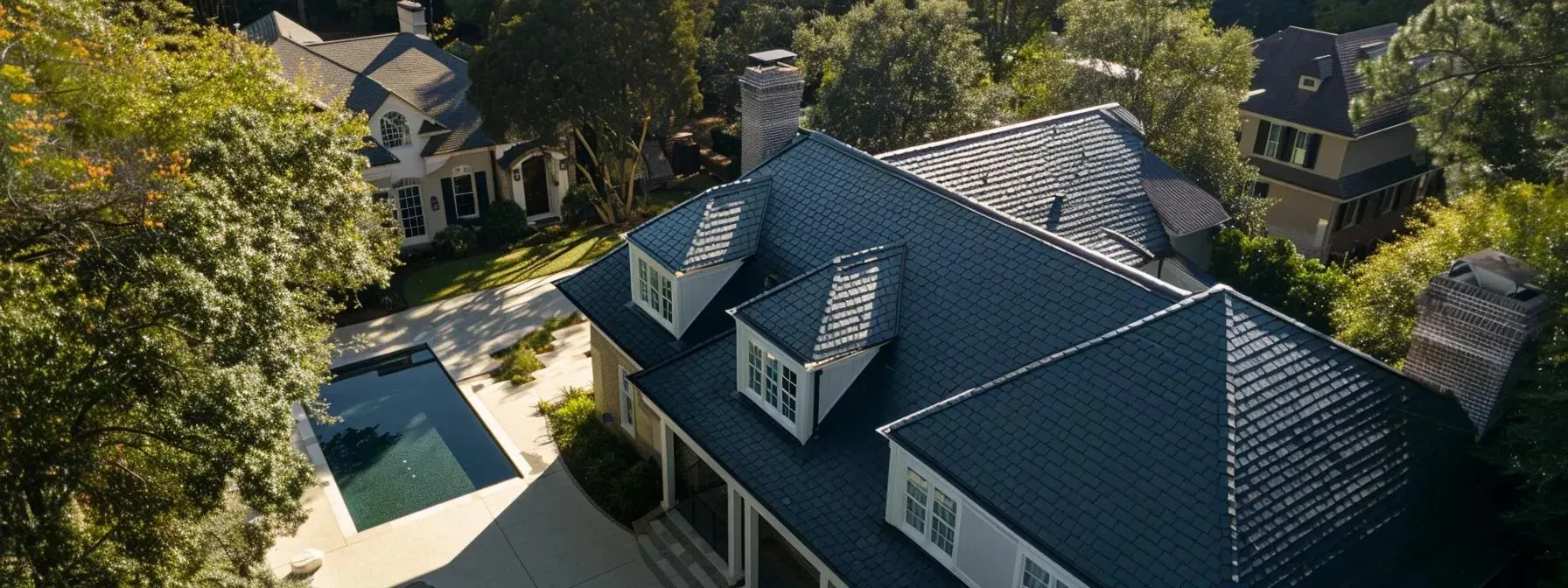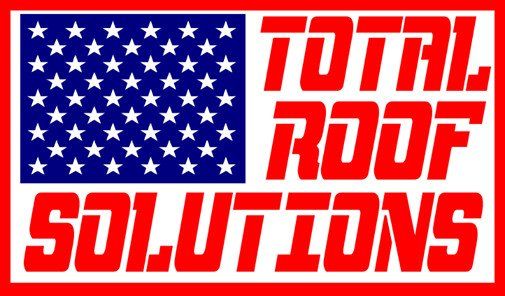Understanding Roofing Insurance Coverage in Georgia
Did you know that there are roofing insurance policies that cover any manner of damage to your home? Most homeowners are aware of policies that insure against storm and water damage, but there are other elements of coverage they might be overlooking. Knowing every coverage option available is a wise move, and these options probably cost less than you think.
Understanding roofing insurance coverage in Georgia is essential for property owners. Many people believe their residential roofing is fully protected without realizing potential gaps due to common exclusions like flood damage or wear and tear. This blog post will explore the types of roofing insurance available, common exclusions, and how to navigate the claims process effectively. By engaging with this content, readers will gain valuable insights into protecting their property and ensuring they have the right coverage in place. This knowledge can help eliminate confusion and provide peace of mind regarding their roofing insurance needs.
Overview of Roofing Insurance Coverage in Georgia
Roofing insurance, or risk insurance, is an essential aspect for property owners in Georgia, providing crucial coverage against potential damages. Key components of these policies include protection against natural debris, liability coverage, and the impact of weather events. Understanding premium costs and factors affecting coverage is vital for making informed decisions. An instant quote from a reliable insurance company can help property owners identify suitable options.
What Roofing Insurance Is and Why It Matters
Roofing insurance is a crucial safeguard for property owners in Georgia, providing essential coverage that protects against potential risks. This type of insurance includes various components such as workers compensation insurance, which protects contractors and their employees while they work on roofing projects. Understanding the scope of roof insurance claims is vital, as it ensures property owners are prepared to manage and mitigate expenses related to roof repairs or replacements due to unforeseen events.
This insurance is necessary not only for protecting physical assets but also for ensuring the long-term viability of a property. When severe weather damages a roof, having the right coverage can prevent significant financial burdens, allowing for a smoother process in handling claims. Additionally, integrating roof insurance with other policies like life insurance can provide a comprehensive risk management strategy, ensuring that property owners are fully protected against a range of hazards.
Key Components of Roofing Insurance Policies in Georgia
Key components of roofing insurance policies in Georgia encompass various essential elements tailored to protect property owners from significant risks. An integral part of any insurance program is workers compensation, which safeguards contractors and their employees while they handle roofing repairs or installations. This coverage is crucial, as it protects against potential lawsuits resulting from accidents or injuries that may occur on the job site, ensuring that both the contractor and property owner remain protected from unexpected financial burdens.
Another vital aspect of roofing insurance is coverage for materials and equipment, especially when using reliable brands like GAF. This type of protection ensures that if a storm damages the roofing gear or materials, property owners are not left to bear the full cost of replacements. Understanding these components allows property owners in Georgia to make informed decisions about which insurance policies best suit their needs, providing peace of mind amid unpredictable weather conditions.
Understanding Premium Costs and Factors Affecting Coverage
Understanding the costs associated with roofing insurance is crucial for property owners in Georgia. Premiums can vary based on several factors, including the property's location, roof type, and coverage levels. For instance, those in areas prone to severe weather, which increases the risk of storm chasing claims, may encounter higher costs. Additionally, incorporating commercial property insurance can provide broader protection, but it may also affect overall premium rates. Compliance with local laws and regulations relating to roofing practices is essential, as adherence can mitigate some costs.
Furthermore, the legal liability associated with roofing operations should not be overlooked. Contractors with workers' compensation coverage and liability insurance often result in lower premiums since they adhere to safety regulations that protect not only their employees but also property owners. By analyzing these factors, property owners can make informed choices about their roofing coverage, ensuring they are adequately protected against potential risks while managing costs effectively.
Types of Roofing Insurance Coverage Available in Georgia
Understanding the various types of roofing insurance coverage is essential for ensuring comprehensive protection for both property owners and construction businesses. General liability insurance is crucial for safeguarding against potential claims, while property insurance specifically caters to roofing contractors and their unique needs. Workers' compensation insurance requirements provide necessary safety for employees, and equipment and tools coverage addresses wear and tear on essential tools. Each of these components plays a vital role in enhancing the profession's overall security and protecting investments.
General Liability Insurance and Its Importance
General liability insurance is a vital component for roofing companies operating in Georgia, as it offers protection against claims related to personal injury and property damage. For instance, if a passerby suffers an injury due to a falling object while a crew is working on a roof, having roofing liability insurance can shield the company from significant financial responsibility. This coverage ensures that roofing contractors can manage risks effectively while maintaining their business operations safely.
The importance of general liability insurance extends beyond just financial safety; it fosters trust with clients and other stakeholders. When roofing companies carry adequate coverage, it demonstrates professionalism and commitment to both client satisfaction and employee safety during operations, such as ladder work. This assurance is key for property owners who want to ensure that their project is handled by a responsible contractor, ultimately enhancing relationships and providing peace of mind throughout the roofing process.
Property Insurance for Roofing Contractors
Property insurance for roofing contractors is a vital part of protecting their interests in Georgia. This coverage helps shield a roofing business from financial losses arising from damage to tools, equipment, and materials. With the unpredictability of weather and potential accidents on job sites, having the right insurance ensures that roofing businesses can continue operations without facing devastating financial setbacks.
Many homeowners insurance cover aspects related to roofing, but specific property insurance tailored for roofers provides specialized protection that standard policies may lack. For example, the ability to claim losses related to equipment theft or damage during an inspection can be crucial for a roofer. By properly investing in property insurance, roofing contractors can enhance their credibility and reliability, ultimately fostering trust with property owners who seek quality services.
Workers' Compensation Insurance Requirements
Workers' compensation insurance is a legal requirement for roofing contractors in Georgia, offering vital protection for employees in the event of an accident on the job site. This policy covers medical expenses and lost wages due to work-related injuries, including those resulting from roof damage during repairs. By having proper workers’ compensation coverage, contractors ensure a safer working environment, reducing the risk of financial difficulties stemming from workplace incidents.
In addition to compliance with state laws, securing workers' compensation insurance helps roofing contractors build trust with clients. When property owners see that a contractor is insured, it signifies that the business takes safety seriously, which is essential in an industry prone to accidents. This type of policy not only shields the contractor from liabilities but also reassures clients that they are choosing a responsible service provider capable of handling unforeseen challenges effectively.
Equipment and Tools Coverage
Equipment and tools coverage is a vital aspect of roofing insurance that protects contractors from financial losses related to their essential tools. A comprehensive policy helps roofing professionals secure funds to replace or repair tools that may be damaged during a storm, such as strong wind events. Understanding the intricacies of this coverage can assist contractors in filing a claim efficiently when unexpected emergencies arise.
This type of insurance not only safeguards contractors’ equipment but also plays a role in employee benefits. When tools are secured and available, workers can perform their jobs effectively, reducing the likelihood of accidents and ensuring quality service for homeowners. Property owners who partner with contractors carrying this assurance can feel confident that their projects will be completed safely and efficiently, minimizing delays caused by equipment-related issues.
Common Exclusions in Roofing Insurance Policies
Common exclusions in roofing insurance policies often leave property owners vulnerable to unanticipated expenses and risks. Understanding what is typically not covered, such as certain weather conditions or improper installation, is crucial for informed decision-making. Identifying risky scenarios without coverage allows roofers to mitigate potential losses effectively. Reliable insights can aid property owners in navigating these gaps while obtaining a free quote from trusted providers like Owens Corning.
Understanding What Is Typically Not Covered
Many roofing insurance policies come with common exclusions that leave property owners exposed to various risks. For instance, while warranties may cover roof defects, they typically do not include damages resulting from poor installation or maintenance issues. Homeowners should also be aware that certain weather events, such as hail or wind storms, might be excluded from coverage, making it vital to understand the limitations before committing to a policy.
Furthermore, roofing insurance often does not cover any revenue loss due to delays in roof repairs or ongoing home improvement projects. In situations where additional liability such as umbrella insurance might be beneficial, property owners must thoroughly review their policy terms. Recognizing these exclusions allows property owners to take proactive steps to protect their investments and avoid unexpected financial burdens associated with common roofing challenges.
Identifying Risky Scenarios Without Coverage
Identifying risky scenarios without insurance coverage is vital for property owners in Georgia. For example, if a subcontractor causes damage during a roofing project, the property owner may face significant expenses if their policy lacks general liability coverage. This gap can lead to rejected insurance claims, leaving property owners to manage financial burdens stemming from accidents or installation errors.
Another situation arises when roofing projects encounter weather conditions that may not be covered by insurance. If a storm damages newly installed materials, property owners in New Jersey could find themselves in a precarious position without proper coverage. Understanding these potential exclusions can help property owners make informed decisions, ensuring that they are not left vulnerable to unexpected costs in the future.
Navigating the Claims Process in Georgia
After a roofing incident, it is essential to know the steps to take for managing property damage effectively, especially in cases involving negligence or severe weather like snow. This section will outline how to file a claim successfully while considering factors such as equipment depreciation and the specifics of each individual situation. Understanding these procedures can provide significant peace of mind to property owners.
Steps to Take After a Roofing Incident
After a roofing incident, it is crucial to take prompt action to mitigate potential damage and ensure a smooth claims process. Property owners should begin by documenting the damage thoroughly, capturing clear photographs of the affected areas, including the asphalt shingle condition. This inventory serves as essential evidence when filing an insurance claim, helping to substantiate the extent of the damage and the need for repairs. Engaging a qualified roofing contractor is also recommended at this stage, as they can provide professional assessments and estimates that will support the claims process.
Once the damage is documented, property owners should contact their insurance provider to report the incident and initiate the claims process. A clear understanding of the insurance costs associated with the specific policy is vital, as it can guide property owners in navigating deductibles and coverage limits. If applicable, homeowners may also consider assessing their commercial auto insurance if work-related vehicles were involved in the incident. Timely communication with the insurance company, along with any documentation from the roofing contractor, can significantly expedite the claim and ensure that property owners get the coverage they need for repairs or replacements.
How to File a Claim Successfully
To file a claim successfully after roofing damage, property owners should begin by gathering relevant documentation, including photographs of the damage caused by incidents such as lightning or severe weather. Presenting clear evidence, along with estimates from a reputable roofing contractor, is crucial for substantiating claims and facilitating a smoother process with the insurance provider. Understanding the specific details of their policy, including coverage limits and deductibles, allows homeowners to effectively navigate the claims landscape.
Additionally, clear communication with the insurance company is essential at every stage of the claims process. Property owners should ensure they report the incident promptly and provide all necessary information regarding the damages, including any implications related to builders risk insurance if the property is under construction. By maintaining organized records and staying proactive, property owners can enhance their chances for a favorable outcome, minimizing delays and financial setbacks associated with roofing repairs.
Choosing the Right Insurance Provider in Georgia
When choosing an insurance provider in Georgia, important factors include the company's reputation, the extent of insurance cover offered, and specific protections against construction-related risks like theft. Evaluating insurance quotes and policies will further aid property owners in selecting the best coverage for their needs. This section will delve into these considerations to ensure informed decision-making.
Factors to Consider When Selecting an Insurer
When selecting an insurance provider in Georgia, homeowners should carefully evaluate the insurer's reputation and expertise in roofing insurance, particularly regarding challenges such as hail damage. Choosing a provider with a solid understanding of the specific needs of residential roofing contractors ensures that they can offer tailored solutions, including essential liability coverage that protects against potential risks during projects. A reputable company will have experience handling claims related to severe weather, providing peace of mind for homeowners investing in roof repairs or replacements.
Moreover, it is crucial to assess the level of customer service offered by potential insurers. Homeowners need a provider that is responsive and willing to clarify policy details, especially regarding the coverage provided for accidents involving contractors. By prioritizing customer interaction and support, property owners will navigate the insurance process more efficiently, ensuring that their rights and investments in roofing services are well-protected throughout any incidents that may arise.
Evaluating Insurance Quotes and Policies
Evaluating insurance quotes for roofing contractors insurance is crucial for property owners in Georgia, especially in areas prone to hail damage. By comparing different policies, property owners can assess the extent of coverage provided, including inland marine insurance that protects equipment and materials used in roofing projects. Understanding the specifics of each quote allows homeowners to choose a reputable homeowners insurance company that aligns with their needs while safeguarding against unexpected costs.
In the evaluation process, it is important to scrutinize policy details such as deductibles, coverage limits, and exclusions. Property owners should ask potential insurers about the provisions for severe weather incidents like hail damage, ensuring they have adequate protection. Engaging with providers who are knowledgeable about roofing insurance can lead to informed decisions, allowing homeowners to secure optimal coverage against risks while managing expenses effectively.
Resources for Roofing Contractors in Georgia
State regulations and compliance guidelines play a crucial role in roofing insurance in Georgia, ensuring contractors maintain valid bonds and proper property insurance. Local associations and support networks provide essential resources to enhance industry knowledge, while educational resources on general liability insurance and best practices further equip contractors for success. These elements collectively foster a supportive environment, enabling businesses to address customer needs effectively.
State Regulations and Compliance Guidelines
In Georgia, roofing contractors must adhere to specific state regulations and compliance guidelines to maintain their licenses and provide secure services to clients. This includes acquiring valid contracts that clearly define the scope of work and responsibilities, which protects both the contractor and property owners from disputes. Furthermore, contractors are encouraged to invest in commercial umbrella insurance to safeguard their business against potential claims that extend beyond standard liability limits, effectively covering additional risks like significant water damage.
Understanding these regulations not only reinforces the importance of compliance in the insurance industry but also enhances the trustworthiness of contractors among clients. By ensuring that adequate reimbursement policies are in place and that all work is conducted within legal guidelines, roofing professionals can minimize liability and improve customer satisfaction. Staying informed about state regulations allows contractors to navigate the complexities of insurance coverage while providing a reliable service that meets industry standards.
Local Associations and Support Networks
Local associations and support networks in Georgia play a significant role for roofing contractors by providing resources and information regarding essential requirements such as licensing and insurance. These organizations often offer workshops and seminars that focus on important aspects of the industry, including the need for home insurance and equipment insurance. By being involved with such networks, contractors can enhance their knowledge of liability coverage and best practices tailored to meet the specific needs of their business and clients.
Engaging with these associations also fosters relationships within the roofing community, enabling contractors to share insights and strategies for effectively covering roof services against risks. For instance, through networking events, contractors can discuss challenges related to compliance and safety regulations, which ultimately leads to improved operational standards. These connections can result in business referrals and guidance on obtaining the necessary insurance to safeguard their activities, thereby ensuring long-term success in the competitive roofing market.
Educational Resources on Roofing Insurance
Educational resources play a vital role in equipping roofing contractors in Georgia with essential knowledge about insurance coverage. Workshops and seminars often highlight the importance of understanding general coverage details, including how to effectively interact with a claims adjuster. By familiarizing themselves with different policies, contractors can better navigate claims processes and ensure they have appropriate protection in place, ultimately reducing financial risks associated with their work.
Furthermore, resources that provide insights into the percentage of coverage needed can help roofing professionals determine the right lease options for their equipment and materials. This knowledge enables contractors to avoid unforeseen liabilities and enhance their overall business strategy. Accessing these educational tools and training opportunities allows contractors to stay compliant with industry regulations while confidently managing their insurance needs.
